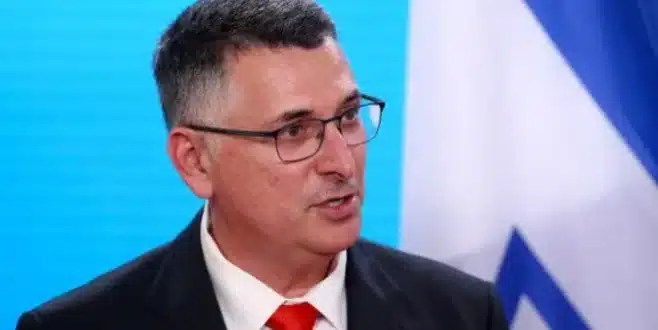In a notable policy development, Israel has expressed a willingness to pursue peace agreements with Lebanon and Syria, marking a possible turning point in long-standing regional tensions. The announcement follows major geopolitical shifts, including leadership changes in Syria and a perceived weakening of Hezbollah in Lebanon.
Speaking at a press briefing in Jerusalem, Israeli Foreign Minister Gideon Saar stated that the country is actively seeking to expand its circle of diplomatic normalization, referencing the Abraham Accords signed in 2020 with the United Arab Emirates, Bahrain, and Morocco. Saar emphasized that extending these agreements to include Syria and Lebanon would be conditional on ensuring Israel’s critical national security concerns.
Saar made his comments alongside Austria’s Foreign Minister Beate Meinl-Reisinger, noting that such peace moves would build on the current momentum in the Middle East. He also referenced Israeli Prime Minister Benjamin Netanyahu’s recent assertion that Israel’s success in a 12-day conflict with Iran could serve as a catalyst for broadening normalization efforts.
Golan Heights and Ongoing Tensions
Despite the call for peace, contentious territorial issues remain. The Golan Heights, a strategically significant plateau captured by Israel from Syria during the 1967 Six-Day War and later annexed, continues to be a major point of dispute. The United Nations has not recognized the annexation, and Syria still considers the region occupied territory.
Following the ousting of Syrian President Bashar al-Assad in December, Israel has increased its military presence in the demilitarized zone overseen by United Nations forces. Additionally, Israel has carried out numerous airstrikes on military positions within Syria, reinforcing its stance on maintaining security dominance in the area.
Tensions with Hezbollah in Lebanon also persist. Though weakened after military losses during last year’s confrontations with Israel—part of a broader escalation tied to the Gaza conflict—Hezbollah remains a focal point of Israeli defense concerns. Despite a ceasefire agreement reached in November, Israel has continued targeting Hezbollah-linked sites in Lebanon.
Prospects for Broader Regional Dialogue
The recent cessation of hostilities between Israel and Iran on June 24 has been viewed by U.S. officials as a potential springboard for renewed regional diplomacy. U.S. envoy Tom Barrack, who also serves as ambassador to Turkey and special envoy to Syria, suggested over the weekend that opportunities now exist for Israel to explore formal peace agreements with both Syria and Lebanon.
Barrack noted that Syria’s new president, Ahmed al-Sharaa, has shown signs of openness to peaceful engagement with Israel. He added that similar dynamics are emerging in Lebanon, framing peace as an increasingly necessary step toward regional stability.
Barrack linked these diplomatic overtures to the broader goals of the Abraham Accords and the diminishing intensity of conflict in Gaza. He described the recent Israel-Iran truce as a moment to reconsider entrenched hostilities and foster a more constructive regional dialogue.


